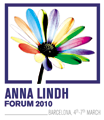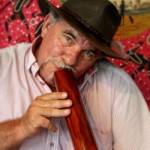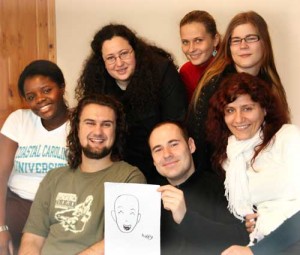Today is the 24th of December – this means Christmas trees, mulled wine, lots of snow recently, and if you were lucky you may have spotted the odd reindeer. In our show today I asked how my guests celebrate Christmas in Australia, Hungary and Germany but also how people formulate their New Year’s resolutions in different cultures.
absolutely santa
Our exchange student and podcast enthusiast Lucy Warren talks to Barbara Neukirchen, who is responsible for the outgoing students from RheinAhrCampus, Remagen. Lucy is interested in how Barbara celebrates Christmas time and whether this could be seen as typical for Germany. In our first category Barbara tells Lucy on which days Germans celebrate Christmas and how they celebrate the count-down to Christmas.
absolutely positive
Have you thought about your New Year’s resolutions? For example stop smoking or drinking less alcohol? Or losing a couple of pounds by going to the gym regularly? I asked Beatrice about her resolutions and she explained to me the difference between positive and negative ones. In our second category we listen to Beatrice’s view about New Year’s resolutions.
absolutely festive
I put together a round table with Lucy from Australia, Emese from Hungary and Andreas from Germany. All of them shared their typical customs and Christmas traditions from their families with me. Of course this does not mean that everybody in their culture celebrates in the same way – sometimes this may be just the culture of that particular family or region. Let us listen to very different experience which range from Christmas on the beach to Advent Calendars.
Our next show will be coming to you from Anne Fox in Denmark on 07. January 2011
The Team of “absolutely-intercultural” wishes you a Merry Christmas and a Happy New Year! Thank you for supporting us!
Until then –
Bleiben Sie absolut interkulturell!
The host of this show is: Dr. Laurent Borgmann
Editor: Dino Nogarole









 I would like to take you back to the island where I took you a month ago. Previously, I shared my experiences of an Erasmus Intensive Programme with you and we listened to students and organisers who had taken part in it. We have more material about the project
I would like to take you back to the island where I took you a month ago. Previously, I shared my experiences of an Erasmus Intensive Programme with you and we listened to students and organisers who had taken part in it. We have more material about the project